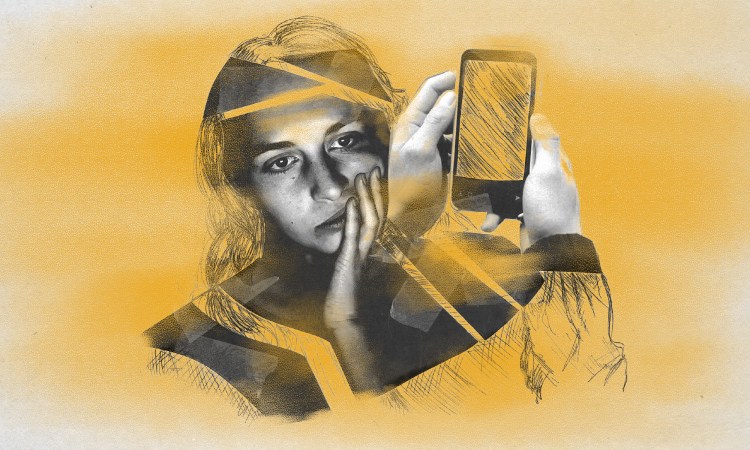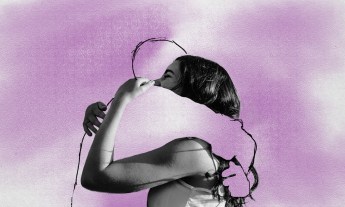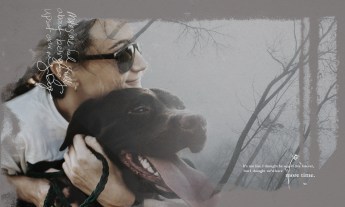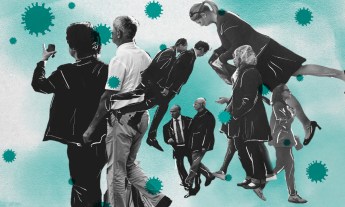
Welcome to “Dear Guy,” TED’s advice column from NYC psychologist Guy Winch. You may know him because of his three thoughtful, helpful TED Talks (on emotional first aid, heartbreak, and work burnout). Or through his TED book about heartbreak, or his preview advice column. Twice a month, he’ll answer your most pressing questions about your relationships, your job (or jobs), your family (or families), your passions, worries, fears, and more. Please send your questions to dearguy@ted.com; to read his previous columns, go here.
Dear Guy:
I live with a tremendous amount of guilt, and I am hoping you can help guide me to the path of the righteous.
I am a serial canceler.
I make plans with the best intentions, but then I cancel them. I also take great joy in people cancelling on me. My excuses are of the garden variety: I don’t feel well (I feel fine), working late (I leave the office at 6PM like clockwork), need to wait at home for the cable guy (I cut the cord years ago).
What makes me do this? I think it’s because I live at the intersection of introvert and extrovert. Extrovert Me has every intention of showing up. I am that bubbly, whimsical, personality-forward person. However, as the date for the plans get close — usually on the Monday of the week they’re to happen — Introvert Me starts the cancellation process in my head.
When it comes to the feelings that drive me to cancel, my first thought is “I don’t know what I am going to talk about!” That awkward small talk that you make when you first meet up is paralyzing, and I worry that it may never end and THEN WHAT?!
After I send my cancel text or email, I feel so happy! But I wonder how many opportunities I’ve missed because I cancelled.
Just last night, I saw someone that I was going to cancel on but didn’t. I ended up having a great time — and 9 times out of 10 I do. Introvert Me shows up at the door, but Extrovert Me is the one who walks through it.
Serial Canceler
Dear Canceler,
Living with a “tremendous amount of guilt” is no picnic. It can be intensely distracting and suffocating, and it can even interfere with our ability to feel happiness. But your question isn’t actually about guilt; it’s about the behavior that provokes it — why you feel so excited about socializing when you make plans, yet get so freaked out about socializing that you eventually cancel them.
You may be wondering whether this emotional turmoil just comes with the territory of living “at the intersection of introvert and extrovert”.
It doesn’t.
In fact, psychologically speaking, the intersection of Introvert and Extrovert is a prime place to live. People who are a mix of Extrovert and Introvert are known as Ambiverts. They can call on a wider range of social skills (for instance, they’re bubbly and outgoing and good listeners) which, studies found, helps them excel at occupations such as sales.
The reason you’re unable to enjoy the full benefits of being an Ambivert is the same reason you’re feeling such emotional conflict about socializing — it has to do with your underlying self-definition, your basic sense of who you believe yourself to be.
Canceler, I suspect you’re relatively new to being an Ambivert. The intensity of your emotions (“That awkward small talk that you make when you first meet up is paralyzing and I worry that it may never end and THEN WHAT?!”) seem characteristic of someone who spent her childhood and adolescence as an Introvert — feeling uncomfortable in most social situations and anxious in anticipation of them. But as happens for some Introverts, you left home, gained confidence, sharpened your social skills, and realized that in the right situation, your inner Extrovert emerges and you are “bubbly, whimsical, and personality forward”.
Many Introverts-turned-Ambiverts tend to feel more extroverted at work (where we all have to be “on” to some extent) and more introverted at home. That’s probably why you cancel plans on Mondays, because after a quiet weekend at home the thought of ramping up into Extrovert mode has all the appeal of an involuntary enema.
But while that explains the “when” of your cancellation habit, it doesn’t explain the “why”. Indeed, you don’t cancel plans because of the effort it takes to get into Extrovert mode; you cancel because you forget you even have an Extrovert mode. The panic you describe at the thought of socializing, the fears of awkwardness and small talk, indicate that your adult Ambivert self gets overridden by old, outdated emotional scripts — the ones that operated in your life before your Extrovert emerged.
Many of us live with the same default emotional reactions we developed in childhood and adolescence, despite the changes and growth we’ve experienced. We move to emotionally secure neighborhoods like Ambivert Heights or Confidence Lane, yet at times we feel like we still live on the corner of Braces and Pimples. These discrepancies usually mean our underlying self-definition has not fully incorporated our newer adult realities — such as having an Extrovert side — into our sense of self. That’s why you feel relieved when you cancel plans or get cancelled on, because your old Introvert emotional script is operating. When you keep your plans despite your anxiety, your Extrovert side kicks in and “9 times out of 10,” you have a good time (a social-life success ratio most of us would love to have!).
So, how can you bring your self-definition into sync with who you are now?
By giving yourself what I call an “identity software update”. This involves acknowledging and emphasizing the newer strengths and capabilities you’ve developed that can contradict your older fears and insecurities. This will also make them less likely to get triggered.
Here’s what I suggest: every time you have the impulse to cancel plans, remind yourself that it’s your Introvert side that’s voicing an opinion. Then, let your Extrovert side respond. It might say, “Yes, the couch is super-cozy, but you’ve been cozying up a storm all weekend and I’ll make it fun once we’re there.” Or, “Remember how good you feel when you’re in full whimsical-bubbly-mode!”). Giving voice to your Extrovert side might persuade you to keep your engagements more often. Most important, your repeated introduction of Extrovert thinking in Introvert moments will, over time, help update your identity and allow you to let go of obsolete emotional scripts.
Here’s another thing you can do to facilitate your identity software update: rewrite the narrative of your life story to describe how you’ve evolved, matured and changed in ways that contrast your older fears and insecurities. (Note: I’m talking short essay, not War and Peace.) Specifically, write your origin story of how you developed and honed your Extrovert abilities. When did you first realize you had them? What are some of the best moments you’ve had in Extrovert mode? How can your Extrovert and Introvert tendencies share custody? Maybe your Introvert can get weekends; your Extrovert, weekdays; and they can share holidays?
You’re no longer just an Introvert, Canceler. You have a need for low-key quiet times and for busy social ones. Updating your sense of identity to more fully incorporate your Extrovert side will reduce your anxiety, which, in turn, will reduce your impulse to cancel plans, which ultimately, is the best way to reduce the guilt you feel.
Guy
Watch his latest TED Talk now:
As “Dear Guy,” NYC psychologist Guy Winch will be answering your life questions — whether it’s about your relationships, your job (or jobs), your passions, your worries, your fears, and more. Please send your questions to dearguy@ted.com and check back regularly to read new questions and answers.











